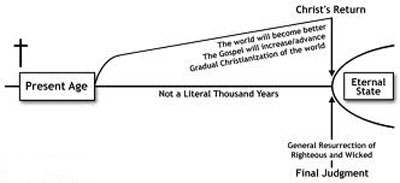I have to admit I have been hesitant to criticize Rick Warren. His book, The Purpose Driven Life, encouraged me when I was a new Christian. I know there are a lot of folks at my church that like him too. But I can’t ignore this one.
Warren decided to lose some weight and do a major health promotion at Saddleback. Of course, everything is BIG at Saddleback so he wanted to get some top name physicians and health consultants. So does he draw from the top minds of evangelicalism? No… he went to the top of of the evil world system.
For the time is coming when people will not endure sound teaching, but having itching ears they will accumulate for themselves teachers to suit their own passions. ( 2 Tim 4:3)
Warren put himself and now his flock under the care of Drs. Mehmet Oz, Mark Hyman, and Daniel Amen who have developed “The Daniel Plan.” Dr. Oz , an Oprah favorite, is the host of the Emmy-winning “Dr. Oz Show” and professor of surgery at Columbia University. His medical qualifications aside, he openly admits that he is inspired by occultist Emmanuel Swedenborg. Swedenborg was an 8th century cult founder who had elaborate conversations “Angels” who dictated his apostate theology. There can be no doubt that they were fallen angels because he taught that all religions lead to God and denied orthodox Christian doctrines like the atonement of Christ, the trinity and the deity of the Holy Spirit. These aren’t excusable errors. Pastor Warren is knowingly putting his church under the influence of this New Age guru. Has he no discernment? What about shame?
He is also endorsing Hyman, a New York Times best-selling author who promotes New Age Buddhist style meditation via the Shambahala center. Amen is an advocate of Buddhist Tantric sex practices and the dubious brain science behind his diet plan Change Your Brain, Change Your Body has attracted the attention of Quackwatch.org.
Seriously, Rick Warren is supposed to be a Southern Baptist, what is going on? It seems that publicity and celebrity trump doctrinal purity and protecting his flock. Perhaps he should consider the warning from James…
Not many of you should become teachers, my brothers, for you know that we who teach will be judged with greater strictness. (Jms. 3:1)
He might take a hint from Francis Chan as well. For more detailed information I suggest this piece by Lighthouse Trails Research.
How does this match up with the book of Daniel? See Unpacking the Daniel Plan.






